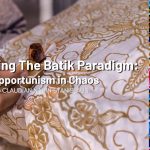By Mark Tungate
David Lubars, BBDO’s chairman and chief creative officer, chats with us about the evolution of creativity in an unpredictable era.
BBDO is network that knows how to weather storms. It can trace its lineage right back to 1891, when George Batten set up his eponymous agency.
After a merger in 1928 it got its full name: Barton, Batten, Durstine and Osbourne. And we know what happened a year later: The Wall Street Crash. BBDO made it through that upheaval and many others.
In the wake of the pandemic, I thought it was high time to check in with BBDO’s chairman and chief creative officer, David Lubars, to see how the network is faring right now. I hadn’t spoken at length to David since 2016, when BBDO was Network of the Year at The Epica Awards.
He hasn’t changed: affable and insightful, with admirably high energy levels. But how did the pandemic change the way the network operates from a creative point of view?
“We come in three days a week now: Monday, Tuesday and Wednesday,” he says. “Which is important because our business is a team sport – it’s impossible to do it in a vacuum. You need the happy accidents that happen when two people talk in a hallway. You need interaction and spontaneity.”
At the same time, he adds, creative people require times of solitude. “In the past you’d maybe go and sit in a diner, or someplace you can be alone to think. So while physically things have changed, mentally it’s the same approach.”
The way consumers engage with brands has evolved, however. “Once upon a time you had ‘the sun’, which was TV, and two moons, which were radio and print.
It took quite a few years before digital impacted that. But today, there is no sun: there are a whole bunch of planets floating around in gas, fog and confusion.
I submit to you that some of the legendary luminaries of the past wouldn’t be happy with that. Before, they had three boxes to fill.
They filled them with wonderful creative things, but their boundaries were defined. In order to thrive today, you have to be comfortable with chaos.”
There is a stabilizing force in this new universe however, and it’s an old one: the big idea.
“The big idea is more important than ever – because it’s what binds everything together. Without it, all these different planets are as unstable as a pyramid of marbles. If they don’t have a container, they scatter everywhere.”
As an example he cites Snickers and the line “You’re not you when you’re hungry.” “Some of the technology that’s around today didn’t exist when we came up with that, but the idea is so big, bendy and stretchy that it can go wherever the world needs it to.”
The next playing field may be the metaverse, which is clearly in its infancy. One of BBDO’s clients is Meta, however. “They have great plans. Of course, right now the metaverse is embryonic, but it will become something huge.”
Talking of Meta, social media has birthed a whole new generation of “creators” that agencies can – and do – bring into the fold. But these newcomers also benefit from the creative legacy of a network like BBDO. “How to generate a big idea – that’s not something you pick up out of thin air.
Agencies know how to manage the tone and the voice of a brand. That takes years to learn.”
TV advertising still exists, of course, although consumers – particularly younger ones – often “discover” shared ads rather than being confronted with them during commercial breaks. Has that changed the way films are made?
“Not really. You always had to make something magnetic and grabby, so that rather than imposing yourself on people, they’d seek you out. Now they have so many choices it’s even more crucial to do that. For a creative house like ours, it’s always been important to respect the viewer.”
Even print still has a place. “A lot of us here come from boutique agencies, where we grew up doing print. There’s something beautiful about print because it doesn’t fly past in 30 seconds.
You can spend time with it. But if you look at an Instagram post, there’s a similarity. Print looks at home there. Today it’s all about using a timeless idea in a timely way.”
Some of the messages have changed, though – over the last few years there’s been pressure on brands to address sustainability or express a “purpose”. BBDO’s clients haven’t been exempt.
“A purpose has to be real. It has to make sense. You can’t just glom on to a cause. It’s right that companies should have ethics and values – and it shows when they’re authentic. It’s a truth they’re living every day.”
For example, cat food brand Sheba’s “Hope Reef” cleverly makes the connection between cats – and their love of fish – and coral reef restoration. Because without coral reefs, fish populations will decline.
One thing I know about David is that music is a source of inspiration for him. The music industry has changed beyond all recognition – for one thing musicians are less likely to feel that any contact with an ad agency is “selling out”.
“Radio used to be essentially ads for albums. You’d listen to the single, which was the ad, then you’d go to a store that sold the album. It was the perfect system.
But with platforms like Spotify, it’s harder to get noticed and even harder to get rich. So having your song on an ad – or a TV show, or a movie – is doing for you pretty much what radio used to do.”
The bottom line is that survival today requires constant adaptability. David cheerfully admits that he suffers from Attention Deficit Disorder and finds unpredictability invigorating.
He’s never afraid of the new. As he often says: “Whatever you do, you can’t let the cement harden. You gotta keep stirring the cement.”
MARKETING Magazine is not responsible for the content of external sites.











